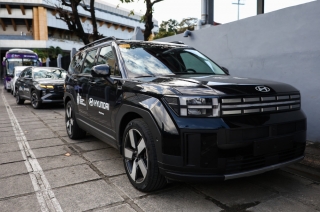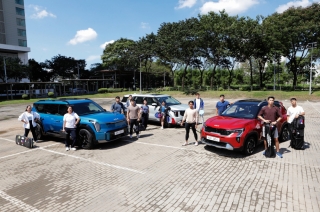
It seems that driving distractions aren’t limited to just using mobile devices or electronic gadgets when behind the wheel. While the dangers of fiddling with a phone while operating a motor vehicle have been highlighted and made very clear over the years thanks to crash statistics, studies have shown that another driving distraction has made itself apparent: the passenger.
That’s right, passengers have a profound effect on drivers when they are out on the road. According to a study, passengers influence driver behaviors, for better or for worse, due to a variety of factors such as passenger age, relationship with the driver, and even gender.
Imagine you’re driving down the road with your passenger, following directions from Waze, and you make a wrong turn. Your passenger says that you screwed up and decides to show the phone with directions in your face as you drive. You glance at it for a few seconds, only to not spot that traffic has stopped in front. If you’re lucky enough, you can slam on the brakes in time, or you end up hitting the rear of the vehicle. Now imagine having more passengers that decide to be backseat drivers, pressuring the driver into driving a certain way. It puts yourself and others at risk.
With that in mind, Ford has compiled a list of five ways you can become a better passenger:
1. Be a helpful co-pilot
Take an active role during the drive by navigating, answering the phone, warning of approaching hazards and keeping the driver company.
2. Don’t distract the driver
If you expect the driver to focus on the road, do your part to minimize distractions. Don’t talk loudly on the phone, constantly change the music or comment on their driving.
3. Stay awake
Sleeping passengers can increase the chances of the driver falling asleep, too. If needed, swap drivers during long journeys so everyone can take a short nap when tiredness sets in.
4. Keep kids safe
Avoid meltdowns by being prepared with a snack, book or other activities for children. Your “precious cargo” – ie. everyone in your car – should be safely secured with seat belts and age-appropriate car seats to minimize distractions and maximize safety.
5. Speak up
You have the right to tell drivers to stop putting your lives in danger if they are driving recklessly or engaging in risky behavior.
Latest News
-
Geely’s EX2 EV headed to Australia — is a Philippine launch possible? / News
The Geely EX2 is confirmed to go on sale in Australia in 2026. Could a launch in the Philippines also be on the cards?
-
Hyundai Motor Philippines is the FIFA Futsal Women's Teams' official mobility partner / News
Hyundai Motor Philippines strengthened its partnership with FIFA through its support of the FIFA Futsal Women's Teams.
-
Kia Philippines backs EJ Obiena as Atletang Ayala continues championing Filipino athletes / News
Kia Philippines strengthens its support for EJ Obiena, backing the Olympian with dedicated mobility at home and abroad.
Popular Articles
-
Electric Vehicles in the Philippines for under P1 million
Jerome Tresvalles · Aug 19, 2025
-
Top 3 Cars For Every Lifestyle—What Cars Are Right For You? | Behind a Desk
Caco Tirona · Apr 24, 2024
-
5 Tips to Maximize Fuel Efficiency
Jerome Tresvalles · Sep 09, 2024
-
Five driving habits that are draining your fuel tank
Jerome Tresvalles · Jun 24, 2025
-
Can engine braking harm your engine?
Jerome Tresvalles · Sep 11, 2025
-
Do electric cars even need maintenance?
Jerome Tresvalles · Oct 23, 2024
-
Best vehicles for an active outdoor lifestyle
Shaynah Miranda · Jul 25, 2024
-
How to drive different types of vehicle transmissions
May 23, 2024
-
5 easy ways to keep your car interior clean
Allysa Mae Zulueta · Nov 15, 2021
-
How to survive Metro Manila traffic
Earl Lee · Aug 16, 2022



